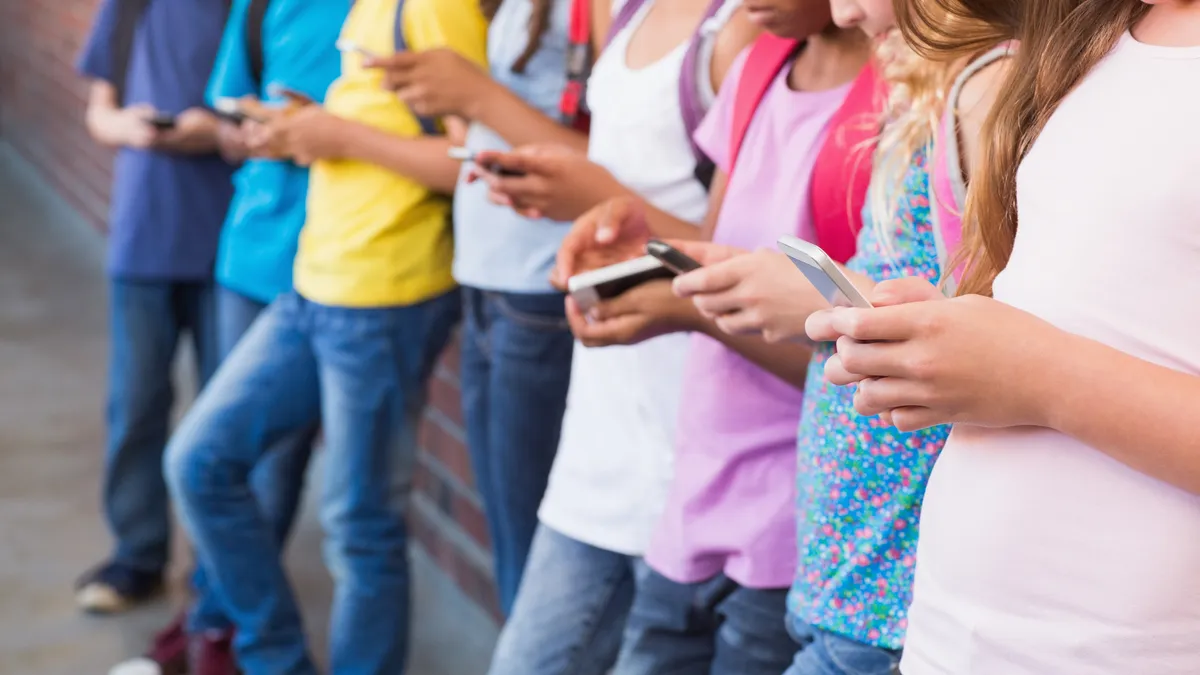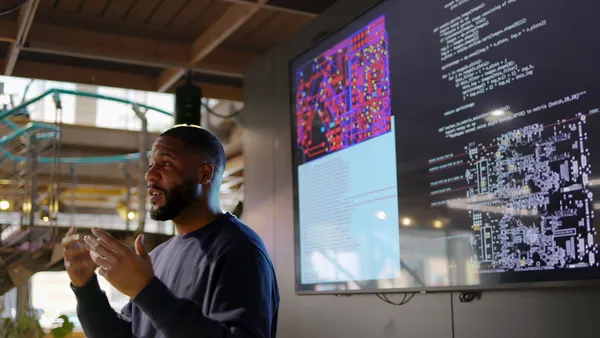Dive Brief:
-
The Florida Board of Education this week approved new rules banning TikTok on all personal devices using school internet and on devices owned or provided by schools. The rule implements HB 379, which was signed into law by Gov. Ron DeSantis in May to "get TikTok out of schools."
-
The ban will prevent media "that may be harmful to children and may distract them from classroom instructional time," said Paul Burns, chancellor of the K-12 public schools division at the Florida Department of Education, at a Wednesday school board meeting discussing the rules.
-
Part of a broader school internet safety measure, the ban also requires boards to adopt policies preventing students from connecting to all social media sites while using a district-owned computer or server, unless directed by a teacher for an educational purpose. It also requires instruction "on the social, emotional, and physical effects of social media."
Dive Insight:
Florida is one of the earliest states to ban TikTok in schools. Montana Gov. Greg Gianforte also signed a TikTok ban in May, but that restricts use across the entire state rather than only in schools.
Montana's law was challenged in court that same month by TikTok creators, a lawsuit that was funded by the social media platform itself.
Many other states as well as local districts have taken issue with the company. Louisiana's Superintendent of Education Cade Brumley, for example, advised all school system leaders in January to remove the TikTok from public school devices because of privacy concerns stemming from the Chinese ownership of the platform.
A growing list of districts have also sued Tiktok in the past year, many of them citing student mental health concerns. A lawsuit filed by Maryland's Howard County Public School System in June, for example, said TikTok and other social media are "addictive and dangerous" and have changed the way kids "think, feel, and behave."
In March, multiple districts across the country filed a 281-page complaint, claiming TikTok and other social media "exploit children and adolescents." That lawsuit is seeking unspecified monetary damages, as well as injunctive relief ordering the companies to fix "addictive" design features and provide warnings to minors and parents that their products "pose a clear and present danger to unsuspecting minors."
Meanwhile, TikTok remains teens' favorite social media platform, according to a spring 2023 survey of nearly 5,700 teenagers.
In 2021, teen interest in the app and other social media platforms led to school vandalizations after a "devious licks" challenge emerged encouraging students to film themselves stealing school soap dispensers or drawing on school walls.
Shortly thereafter, TikTok condemned a rumored "slap a teacher" dare that asked students to "smack a staff member."
In the rumor's aftermath, National Education Association President Rebecca Pringle wrote a letter to Facebook, Twitter and TikTok demanding that the companies "make a public pledge to students, educators, and their families to regulate lies and fix your algorithms to put public safety over profits."
"Educators understand the incredible potential of social media," Pringle said. But, she added, after two years of a pandemic, "We’re all exhausted, stressed, and stretched so thin it feels like we’ll crumble — and now we’re facing growing violence fueled by corporations with no oversight and no accountability to the communities they harm."
Florida's implementation of the TikTok ban comes the same week that a report released by the American Federation of Teachers and the American Psychological Association said social media platforms are undermining classroom learning and student wellbeing. The report also said districts are incurring increasing costs as they try to hire additional mental health personnel to address the mental health crisis caused by social media. Other impacts on schools include:
- The need to develop lesson plans to teach students about the dangers of social media.
- Spending more time confiscating phones and devices students are using for social media.
- Increasing disciplinary response to "the explosion of bullying and harassment incidents" occurring on social media.
- Repairing or replacing school property damaged because of social-media related issues.
- Meeting with families and diverting time from instructional activities to address social media use rather than academics.












